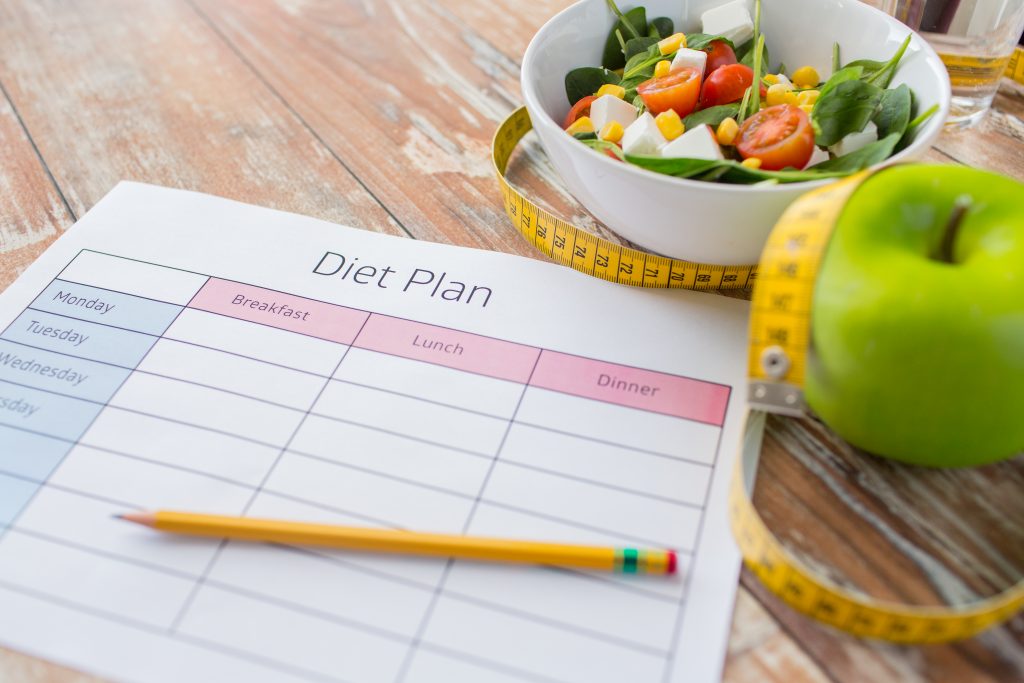
Nutritionist vs Dietitian – What’s the Difference?
Dietitian and nutritionist – the terms sound much the same, so it’s only reasonable to wonder about the difference between the two. While there are many similarities between a nutritionist and a dietitian, there are also important differences.
If you’re in good health and want general advice on eating well, or need support for managing your weight or want to double check you’re getting adequate nutrition on a certain type of diet, these differences may not matter too much.
But if you have a health or medical condition, or you have a disability and are looking for dietetic support funded through the NDIS, these differences are vital to understand. We describe what you need to know about them, starting with a look at what a nutritionist and a dietitian do.
What is a nutritionist?
Nutritionists support people to achieve optimal health and wellbeing by advising them about healthy eating choices. They use nutrition science and evidence to provide recommendations that promote the health of individuals and societies.
Nutritionists work with people who have general health or wellbeing concerns, such as needing adequate nutrition for different life stages, weight management, and nutrition related to certain dietary choices, such as vegetarianism.
Nutritionists work in a wide variety of settings, including private practice, community health facilities, gyms, sports clubs, and organisations needing advice about food safety, formulation of healthy products and food analysis.
Some of the things a nutritionist might do include:
- planning and applying diets, menus and meal plans
- consulting with individuals and groups (including athletes and sportspeople) about their nutritional needs and appropriate diet
- educating people about the importance of nutrition in the context of a healthy diet and food preparation
- reviewing clients’ progress against their goals and adjusting their dietary plans accordingly
- calculating the nutritional values of food in menus and meal plans.
Nutritionists, however, are not trained in medical nutrition therapy and therefore cannot provide dietary advice for specific diseases or health conditions, as this is not within their scope of practice. Additionally, they are unable to work in clinical settings, such as hospitals or for NDIS service providers. Rather, a dietitian would be the most qualified health professional to support these complex nutrition needs.

Both nutritionists and dietitians can help with healthy diet and meal planning
What is a dietitian?
The easiest way to explain the difference between dietitians and nutritionists is to understand that dietitians have all the skills of a nutritionist, plus further specialist training that enables them to work with patients in clinical settings.
In addition to all the tasks described above, a dietitian can provide expert nutritional advice for managing and treating a wide range of diseases and health issues. This includes physical issues like diabetes, gastrointestinal conditions (such as coeliac disease) and heart disease, and mental health issues such as depression.
Clinical dietitians can also help with issues such as food intolerances and allergies, picky eating related to autism, PEG (tube) feeding, disordered eating, and texture modified diets for people with swallowing difficulties.
This means they can work across the full range of clinical settings. A dietitian might work in:
- a public or private hospital
- private practice
- community nutrition services
- NDIS funded services
- public health research and policy making
- sports nutrition
- dietetic education and research
- food service organisations
- aged care facilities.
As allied health professionals, dietitians often work as part of a multidisciplinary team that includes other health professionals (such as doctors and exercise physiologists), to support the best outcomes for their patients.
Dietitian vs nutritionist training
To become a nutritionist, you usually have to study a university degree in nutrition, health science, or applied science with a major in nutrition. Some people, however, may call themselves a nutritionist if they have taken a short course in the topic, or training in complementary therapies such as naturopathy (more about this below).
A dietitian usually has a minimum four-year university degree. Some will have a Bachelor’s degree in a related field (such as nutrition, health science, food science, exercise science, biomedical science, nursing or allied health) and then complete a Master’s degree in dietetics. Study topics include biochemistry, physiology, food science, health promotion, community and public health nutrition, and medical nutrition therapy. Dietitians are trained to understand and evaluate findings from scientific studies into nutrition and diet, including dietary interventions for specific disease states.
Furthermore, they have significant training in individual counselling, and will have undertaken clinical placements in a relevant setting or settings, such as a hospital, private practice, community health facility, or NDIS community provider.
Who can say they’re a dietitian or nutritionist?
You might be surprised to learn that Australia currently doesn’t legally protect the terms ‘nutritionist’ and ‘dietitian’. Therefore, unlike the highly regulated names used by other health professionals (such as physiotherapists), anyone could theoretically use these terms to describe what they do.
In practice, this means people with various levels of education, knowledge and experience may call themselves a dietitian or nutritionist.
For this reason, Dietitians Australia (previously known as the Dietitians Association of Australia) have a credentialing program for using the term ‘Accredited Practising Dietitian’ (APD) which is protected by law.

Dietitians can work in clinical settings with people with disability and specific health conditions
Who can say they are an APD?
Only dietetic practitioners who have met this program’s requirements can use the APD title. If you are seeing a professional who has the APD credential, you can be confident they have the qualifications, skills and up-to-date knowledge to provide expert, evidence-based nutrition and dietary advice.
The credential is also the only one for dietetics recognised by Medicare, the Department of Veterans’ Affairs, the NDIS, and many private health insurance companies.
To be eligible to join the APD program, dietitians must have a qualification from an accredited Australian university dietetic course. Those with a qualification from overseas must complete an examination to be eligible. In addition to minimum education requirements, the program includes requirements for recency of practice, 30 hours per year of continuing professional development, ethical and professional conduct, and a process for complaints and disciplinary action. These policies and procedures are in place to protect clients and ensure they are receiving the best nutrition care possible.
What is dietetics about?
The term ‘nutrition’ is fairly self-explanatory, but the term ‘dietetics’ probably less so. The two go hand-in-hand. Dietitians Australia explain that dietetics is a profession whose purpose is to promote health, and to prevent and treat illness, through optimal nutrition. Dietetics is about supporting health and managing disease in individuals, but also in communities and whole populations.
They add that dietitians have a specified and identifiable body of knowledge in this field. They use scientific principles and practices to both study nutrition and dietetics, and to apply these results to influence the larger environment that impacts food intake and eating behaviour.
Dietetic practice covers a wide scope of environments, settings and functions. For example, a dietitian could work at a hospital or aged care facility to make sure the meals meet the nutritional needs of patients and residents. They could work with a non-government organisation in a developing nation to establish food safety and nutrition policies. Or they could work with individuals with disability or chronic conditions to support their wellbeing and treat any health issues – like the clinical dietitians at Active Ability do!
Our NDIS approved dietitians are experts in clinical nutrition. They use research-backed science to provide individualised nutrition assessment and advice for people with disability. Our team have particular interest and experience in working with people who have intellectual disability, mental illness or neurological conditions.
Your diet has a major effect on your health – physically and mentally. The dietitians from Active Ability will support you to feel and function better through good dietary choices.
As mobile service providers, we will come to your home, workplace, or preferred local facility. And because we don’t have a waiting list or travel charges, we can help you make the most of your NDIS funding and get started quickly towards improved health and quality of life through better nutrition.
Find out more about our NDIS Dietitians here, or contact our helpful team on (02) 8678 7874, hello@activeability.com.au or via our contact form.
References
https://dietitiansaustralia.org.au/what-dietitans-do/dietitian-or-nutritionist/
https://dietitiansaustralia.org.au/maintaining-professional-standards/apd-program/
https://this.deakin.edu.au/career/how-to-prove-you-have-the-skills-to-advance-your-career